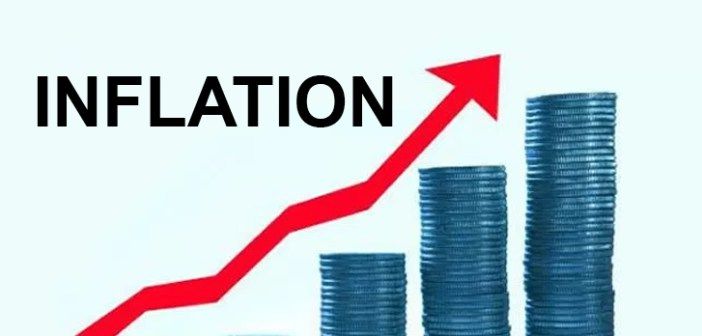Inflation records marginal 0.3% increase to hit 23.5% in January 2024
Food inflation, however, continued to decline as it fell marginally to 27.1% in January 2024 from 28.7% in December 2023. For the month-on-month inflation, non-food inflation was estimated at 2.4% whilst food inflation stood at 1.6%.
- Advertisement -
Data from the Ghana Statistical Service reveals that inflation went up marginally by 0.3% to hit 23.5% in January 2024.
This is from the previous figure of 23.2% inflation rate recorded in December 2023.
- Advertisement -
According to the GSS, the increase in year-on-year inflation was influenced by a sharp surge in non-food items including housing, clothing, and transport.
- Advertisement -
Non-food inflation increased to 20.5% in January 2024 from 18.7% in December 2023.
Food inflation, however, continued to decline as it fell marginally to 27.1% in January 2024 from 28.7% in December 2023.
For the month-on-month inflation, non-food inflation was estimated at 2.4% whilst food inflation stood at 1.6%.
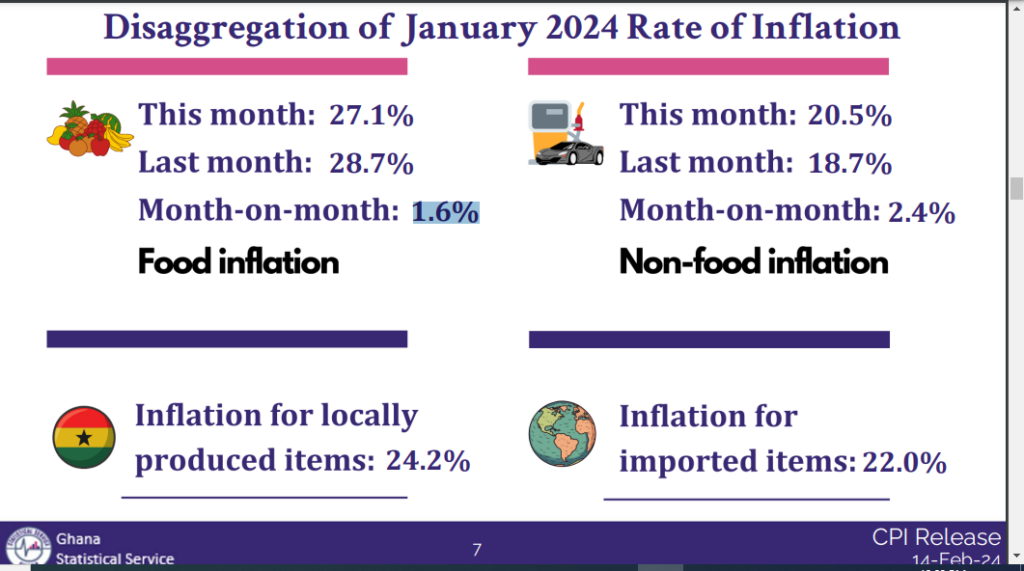
Per the GSS, seven divisions recorded inflation rates higher than the national average. They are Alcoholic Beverages, Tobacco and Narcotics (38.5%); Personal Care, Social Protection and Miscellaneous Goods and Services (32.0%); Restaurants and Accommodation Services (29.2%); Furnishings, Household Equipment and Routine Household Maintenance (27.7%) Food and Non-Alcoholic Beverages (27.1%); Health (26.6%) and Recreation, Sports and Culture (24.9%).
- Advertisement -
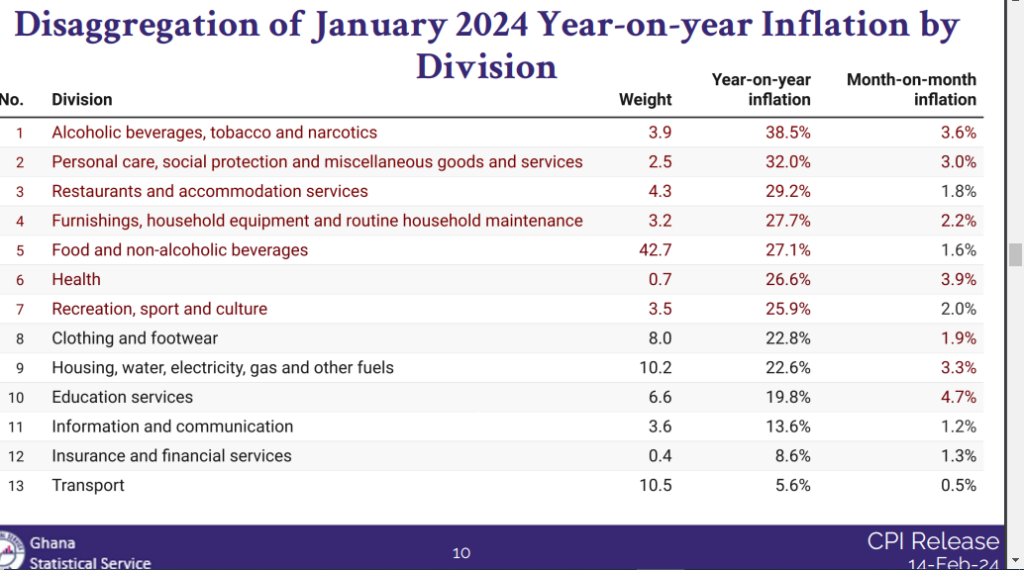
For Food inflation, 10 out of 15 Sub-Class registered inflation above the overall food inflation of 28.7% and they include Cocoa Drinks (73.5%); Tea and related products (71.2%); Vegetables, Tubers, Plantain, Cooking, Banana and Pulses (35.8%) and Coffee and coffee substitutes (33.2%).
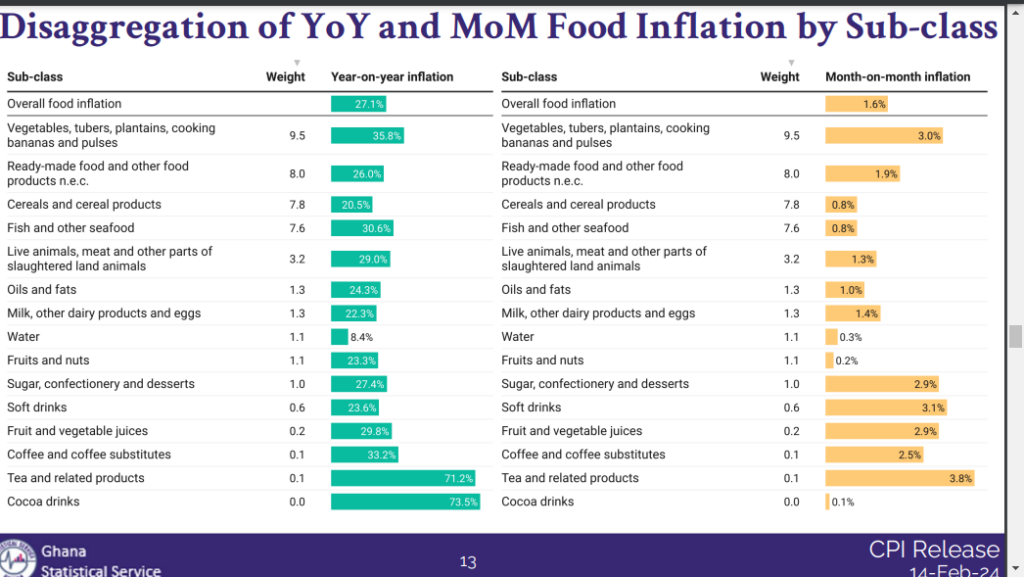
With regards to inflation across the 16 regions, the Eastern Region recorded the highest rate of inflation of 37.1% driven by food prices, whilst the Greater Accra Region registered the lowest rate of inflation of 18%.
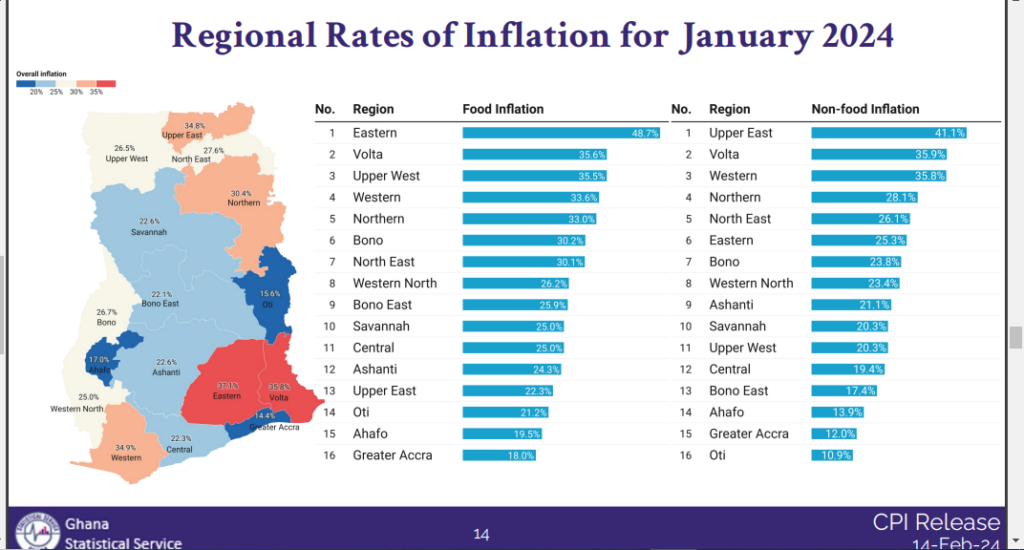
- Advertisement -


